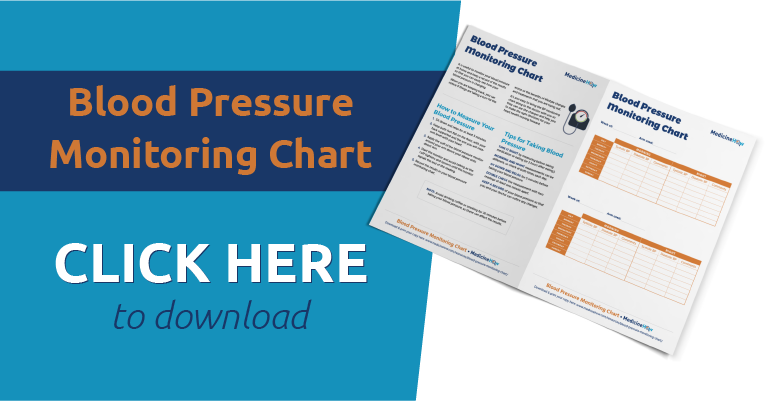
Diltiazem is a type of drug called a calcium channel blocker, which works to reduce blood pressure by stopping the calcium entering the cells to relax the muscles in the heart and around the blood vessels. If you or someone you know is taking diltiazem and you’d like to know more about how it works, this is for you.
Diltiazem Doses and Brand Names
![]() Diltiazem is the generic name – the name of the actual drug component inside your medication. The brand name written on the packaging might be slightly different such as:
Diltiazem is the generic name – the name of the actual drug component inside your medication. The brand name written on the packaging might be slightly different such as:
- Cardizem
- Vasocardol
- Coras
- Dilzem
All of these medications contain the same drug and do exactly the same thing and are just manufactured by different companies. Each tablet contains 60 mg of diltiazem and you will need to take 3-4 tablets each day.
When you think about it, 3-4 tablets each day is quite a lot for you to remember. The reason that you need to take a dose so often is because your body is very efficient at eliminating it from your body: just 4 hours and half of it is already gone.
For this reason, a new type of formulation called a “controlled release” medication was developed. This still contains diltiazem, but in higher doses that are slowly released to your body over time, so you only need to take one capsule each day. These brands are:
- Cardizem CD
- Vasocardol CD
- Dilzem CD
- Diltahexal CD
These brands come in a variety of doses: 180 mg, 240 mg and 360 mg.

What type of drug is it?
![]() Diltiazem is a type of drug called a benzothiazepine calcium channel blocker. Other calcium channel blocker drugs that work in a similar way are:
Diltiazem is a type of drug called a benzothiazepine calcium channel blocker. Other calcium channel blocker drugs that work in a similar way are:
It is a special type of calcium channel blocker, called a benzothiazepine calcium channel blocker. This means it has a greater effect on the heart than most of the other drugs in the same class, rather than acting on the blood vessels.
What is it used for?
![]() Diltiazem is often used to help prevent attacks of angina, especially when used in combination with a drug to help prevent clots, like aspirin or clopidogrel. It is also commonly used to treat hypertension and help to lower the blood pressure in the body.
Diltiazem is often used to help prevent attacks of angina, especially when used in combination with a drug to help prevent clots, like aspirin or clopidogrel. It is also commonly used to treat hypertension and help to lower the blood pressure in the body.
Additionally, diltiazem may be recommended to help treat atrial fibrillation, which is a condition that involves irregular rhythm to the heartbeats.
How does Diltiazem work?
![]() Diltiazem works by blocking the entry of calcium into the cells of the smooth muscles in the body. Calcium is usually very important for the muscles in the heart and surrounding the blood vessels to contract.
Diltiazem works by blocking the entry of calcium into the cells of the smooth muscles in the body. Calcium is usually very important for the muscles in the heart and surrounding the blood vessels to contract.
When diltiazem blocks the supply of calcium to these cells, they can’t contract as easily and they become more relaxed. Diltiazem has an effect on both the heart muscles and the around the blood vessels, which leads to a lower heart rate and enlargement of the blood vessels.
For someone with angina or hypertension, this is a good thing. The relaxation of the muscles allows the blood to pump through the blood vessels more easily, lowering the blood pressure. Additionally, the lower heart rate means that there will be a lower volume of blood circulating around the body.
It can be used to treat atrial fibrillation by slowing down the heart rate, although it can’t actually help much to reset the regular rhythm.
Side Effects
![]() The most common side effects of diltiazem happen when the drug is working too well and you end up with a slow heart rate and low blood pressure. Signs of hypotension include:
The most common side effects of diltiazem happen when the drug is working too well and you end up with a slow heart rate and low blood pressure. Signs of hypotension include:
- Headache
- Tiredness
- Dizziness
- Flushing
- Slow heart rate
These signs are common when you first start taking diltiazem as your body gets used to taking the medication and usually get better by themselves over a few days. If you still notice these signs after a week, the dose of diltiazem may be too high and it is best for you to discuss this with you doctor.
Diltiazem can also sometimes cause fluid to build up in your body, making your ankles swollen, which is called peripheral oedema. This usually means the dose is too high and if you notice this you should discuss your symptoms with your doctor as soon as possible.
Cautions
![]() The way diltiazem works leads to a drop in the heart rate, so you shouldn’t take this medication if you already have a slow heart rate.
The way diltiazem works leads to a drop in the heart rate, so you shouldn’t take this medication if you already have a slow heart rate.
It is meant to be taken long-term and if you stop taking it suddenly, the smooth muscles in your body will suddenly be able to contract again and may cause rebound hypertension, worse than before you began treatment. Instead, you should gradually reduce the dose over time to allow your body time to readjust.
You might also find that diltiazem affects your mental coordination, making you feel tired. If this happens to you, you should avoid driving or operating heavy machinery until you feel normal again.

Drug Interactions
![]() When you take diltiazem together with other drugs the way they work can interact, changing their effect on your body. There are many drugs that interact with diltiazem, including:
When you take diltiazem together with other drugs the way they work can interact, changing their effect on your body. There are many drugs that interact with diltiazem, including:
- Alfentanil
- Atazanavir
- Atorvastatin
- Buspirone
- Calcineurin inhibitors
- Carbamazepine
- Cilostazol
- Cimetidine
- Cisapride
- Colchicine
- Cyclosporin
- Calcineurin inhibitors
- Digoxin
- Efavirenz
- Eplerenone
- Imipramine
- Ivabradine
- Methylprednisolone
- Midazolam
- Phenytoin
- Rifampicin
- Ritonavir
- Simvastatin
- Sirolimus
- Tacrolimus
- Ticagrelor
- Triazolam
Pregnancy and Breastfeeding
![]() Diltiazem should be avoided if you are pregnant or planning to become pregnant soon. This is because it can cause maternal hypotension and lead to insufficient oxygen supply to your baby.
Diltiazem should be avoided if you are pregnant or planning to become pregnant soon. This is because it can cause maternal hypotension and lead to insufficient oxygen supply to your baby.
There is no evidence for the safe use of diltiazem in pregnancy at this time, so it is not usually recommended.
Pin it!


